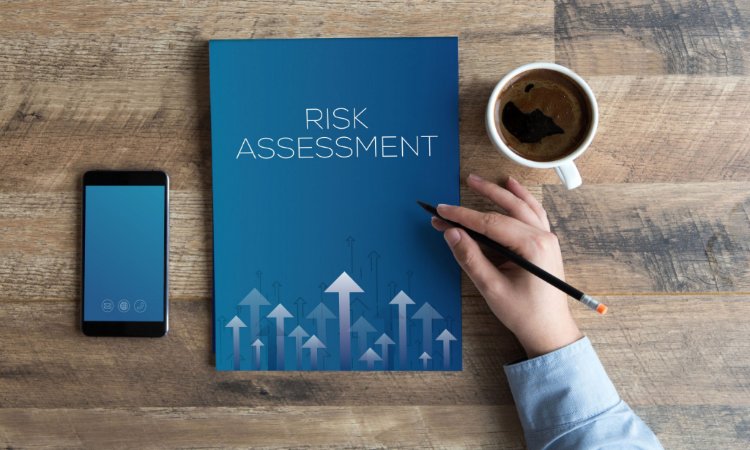In today’s digital-first entertainment era, online gaming has reached unparalleled heights. Among the most popular and accessible forms of digital gaming is the slot machine — a once-physical, now-digital spectacle that combines flashing lights, enticing music, and the promise of instant rewards. In Southeast Asia and beyond, the term “slot gacor” has become synonymous with high-payout, viral online slot games that offer the illusion of consistent wins.
But behind the thrill of these spinning reels lies a growing concern: the rising tide of behavioral addiction tied to online slot gambling, especially among younger and economically vulnerable users. With rapid access to mobile gaming, low-entry costs, and the increasing gamification of betting platforms, players can unknowingly fall into a cycle of chasing losses, mismanaging funds, and ultimately risking financial collapse.
This is where financial literacy becomes not just important, but essential.
Financial literacy isn’t only about budgeting or saving money — it’s a comprehensive life skill that helps individuals make informed, responsible decisions about earning, spending, borrowing, and investing. In the context of digital gambling, it becomes a powerful tool for prevention, control, and recovery.
The New Face of Gambling: Slot Gacor and the Dopamine Economy
Slot gacor games have always relied on a simple psychological loop: action, anticipation, and reward. Today’s “slot gacor” games take this further, leveraging algorithms that create patterns of near-misses, occasional wins, and bonus rounds that stimulate the brain’s reward centers — similar to how social media or addictive mobile apps operate.
These games are designed for engagement, not financial gain. What makes them dangerous is their ability to mimic productivity (as users feel like they’re strategizing or progressing), mask losses as entertainment, and normalize gambling as a hobby rather than a financial risk.
Unfortunately, for many players — especially those without strong financial habits — this perceived harmlessness can escalate into full-blown addiction.
Financial Illiteracy: The Hidden Catalyst of Gambling Dependency
While addiction is a complex behavioral issue influenced by environment, personality, and emotional health, a lack of financial education often accelerates the spiral.
Here’s how financial illiteracy plays a critical role:
- Misunderstanding Risk: Players may not grasp the mathematical odds stacked against them in slot games. Believing in “luck streaks” or that a game is “due for a win” are signs of poor risk assessment.
- No Concept of Long-Term Loss: Without budgeting knowledge, players fail to realize how small, repeated losses accumulate into serious financial damage.
- False Perception of Recovery: Those unfamiliar with debt management or savings strategies often believe they can win back losses with “one big spin,” leading to a destructive chase.
In essence, the absence of financial literacy turns recreational slot play into unregulated spending with no checks, no balances, and no end in sight.
Why Financial Literacy Education Must Evolve
The traditional model of financial education — focused on taxes, credit, and savings — must now include digital risk awareness. As gambling becomes more digitized, accessible, and socially integrated, prevention strategies must be taught proactively, especially among youth and digital natives.
Here’s how modern financial education can help:
1. Teaching the Psychology of Money and Reward
Students and young adults should be educated about how money influences decision-making. Concepts like delayed gratification, risk-reward tradeoffs, and emotional spending must be part of the curriculum. Understanding these will help future players identify addictive patterns early.
2. Explaining the Math Behind Gambling
Instead of preaching abstinence, education should explain the mathematical reality behind slot games:
- House edge
- Random number generation (RNG)
- The illusion of near-misses
- Long-term expected loss
When people see the numbers clearly, their perception changes. Gambling is no longer an investment — it becomes entertainment with known limits.
3. Building Digital Budgeting Habits
The modern gambler is mobile, app-driven, and impulsive. Financial education must match this by teaching how to:
- Track expenses in real-time using budgeting apps
- Set strict entertainment budgets (including gambling limits)
- Use digital wallets wisely to avoid overspending
These habits prevent emotional decisions in high-adrenaline situations, such as during a big loss or a bonus feature round in a slot game.
4. Normalizing Conversations About Debt and Recovery
Shame and secrecy often accompany gambling losses. Schools, community centers, and even digital platforms should create safe spaces for conversations about financial struggles, including those caused by gaming or gambling addiction.
Integrating mental health awareness with financial literacy can help reduce stigma and encourage early intervention.
Role of Families and Communities
Preventing slot addiction is not only a personal responsibility — it’s a community effort.
- Parents should model healthy financial behavior and talk openly about money.
- Teachers and mentors can integrate money management topics into real-life scenarios, including the risks of online gaming.
- Community leaders and influencers can use their platforms to spread awareness, debunk gambling myths, and promote healthy financial habits.
One of the most effective forms of education is storytelling. Real-life testimonials about gambling losses, recovery journeys, and financial transformation can inspire and resonate with at-risk individuals far more than statistics.
Technology: Friend or Foe?
Ironically, the same technology that enables 24/7 access to slot games can also be used to fight back.
There are now AI-based apps and browser plugins that:
- Block gambling websites
- Track spending patterns and warn users when habits change
- Send financial alerts or usage limits to players in real time
Financial education must include how to use these tools, not just why they matter. Empowering users to set their own digital boundaries creates autonomy and awareness.
What Governments and Regulators Can Do
Governments play a crucial role in merging financial education with gambling regulation. Some action points include:
- Mandating Responsible Gambling Prompts: Require all online slot platforms to display loss limits, budget tracking, and real-time RTP (Return to Player) stats.
- Funding School-Level Financial Literacy Programs: Focus especially on regions with high online gambling participation.
- Supporting Research and Outreach: Fund studies and create data-informed strategies on gambling addiction prevention and treatment.
Financial literacy isn’t just about money—it’s about freedom, control, and resilience. When taught properly, it helps individuals avoid traps, including the lure of slot games that promise much and deliver little.
Conclusion: Spinning Towards a Smarter Future
The allure of situs slot gacor games is not likely to fade anytime soon. They offer fast-paced fun, social sharing, and the thrilling possibility of instant wealth. But without strong financial habits and literacy, what starts as harmless entertainment can quickly evolve into a silent financial epidemic.
By reframing financial education as a lifesaving skill in the digital age — one that empowers, protects, and guides — we give people the tools to make better decisions not only in gaming, but in life.
We can’t stop the reels from spinning. But we can teach the world how to press stop before it’s too late.



